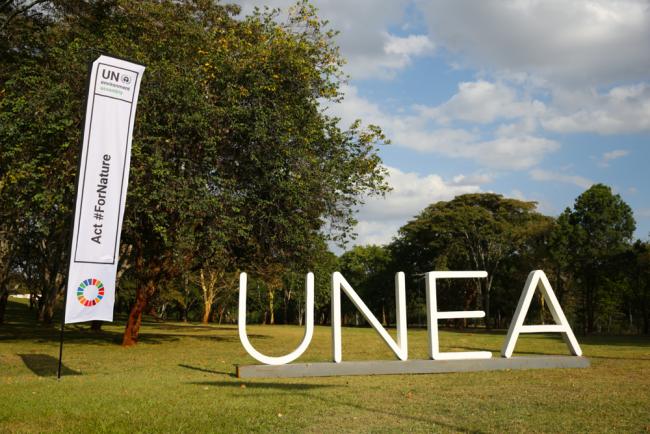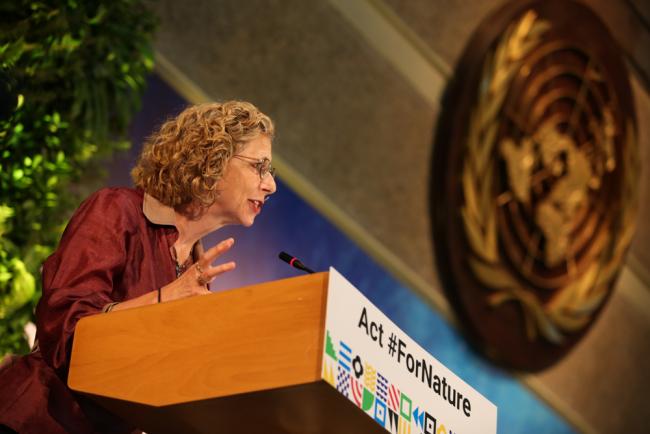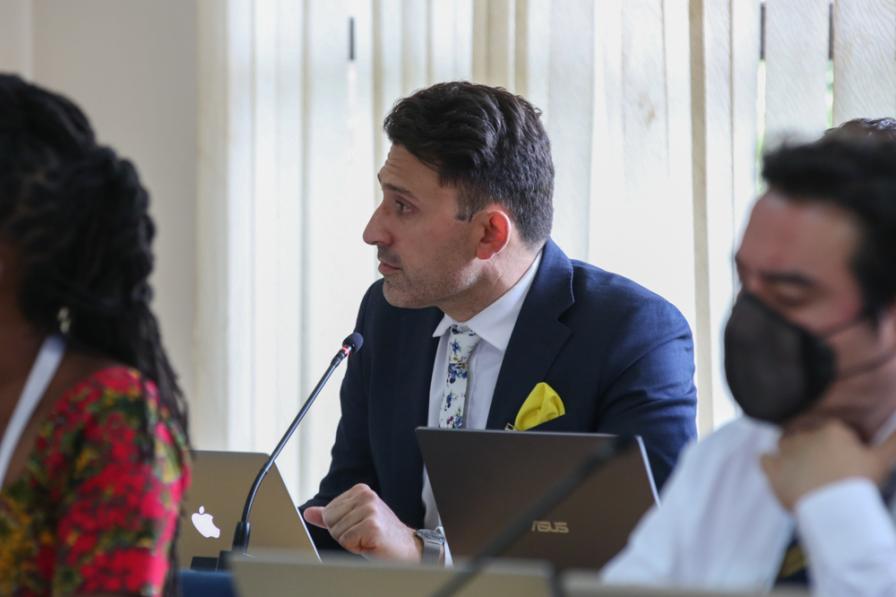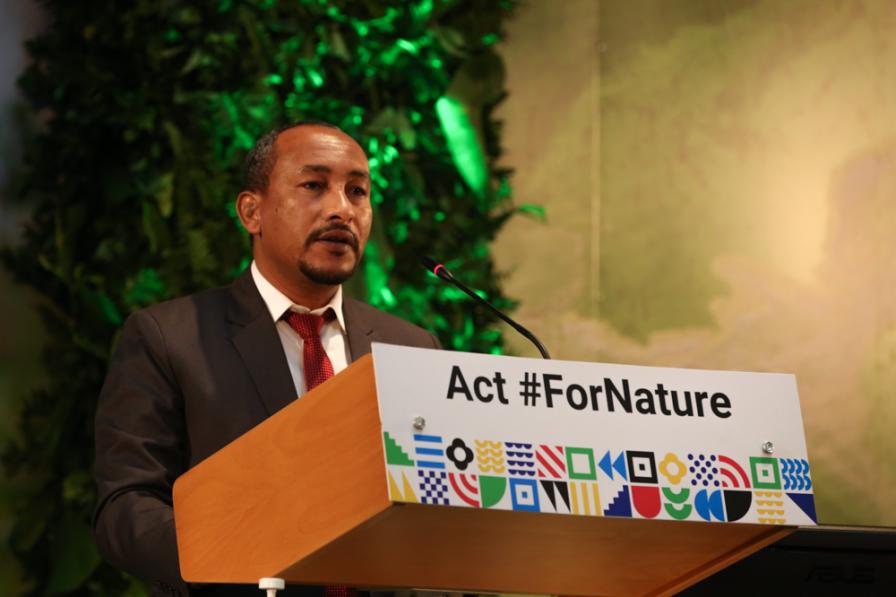On Tuesday, 1 March 2022, the resumed fifth session of the UN Environment Assembly (UNEA-5.2) met in contact groups for most of the day and succeeded on several key fronts. After complex discussions, delegates agreed on a game-changing resolution on a Science-Policy Panel to contribute further to the sound management of chemicals and waste, and to prevent pollution. Meeting in the Committee of the Whole (COW) after a long day of negotiating text, delegates managed to approve 11 resolutions and one decision, as part of efforts to enhance UNEP’s voice on the global stage.
During closing plenary, the COW endorsed resolutions, including on:
- environmental aspects of minerals and metals management;
- enhancing circular economy as a contribution to achieving sustainable consumption and production;
- sustainable and resilient infrastructure;
- nature-based solutions on supporting sustainable development;
- biodiversity and health; and
- environmental dimension of a sustainable, resilient and inclusive post COVID-19 recovery.
The COW closed at 11:59 pm, with delegates approving the decision to hold the sixth session of UNEA at the UN Environment Programme (UNEP) headquarters in Nairobi, Kenya, from 26 February - 1 March 2024.
To dive deeper, read the full daily Earth Negotiations Bulletin report.
Delegates also met in a high-level segment. Under the overarching theme of “strengthening actions for nature to achieve the Sustainable Development Goals (SDGs),” delegates met in a leadership dialogue, and in a multi-stakeholder dialogue. During the leadership dialogue, Carlos Manuel Rodriguez, CEO and Chairperson, Global Environment Facility (GEF), noted that more money is currently being directed towards harmful activities than towards protecting the life supporting systems of our planet. Inger Andersen, Executive Director, UNEP, reminded participants that multilateralism works when “we make it work,” making a rallying call for stronger leadership towards fostering better responses through international coordination and collaboration. Elizabeth Mrema, Executive Secretary, Convention on Biological Diversity (CBD), underscored the significant role of the post-2020 global biodiversity framework (GBF) in advancing collaboration between existing MEAs in order to foster better and more integrated responses to environmental crises. Rolph Payet, Executive Secretary, Basel, Rotterdam and Stockholm (BRS) Conventions, highlighted efforts undertaken by the BRS Conventions to explore links between biodiversity, chemicals and waste, and climate change.
During the multi-stakeholder dialogue, Gitika Goswami, Development Alternatives Group, India, highlighted that there is still time for countries to make far reaching policy choices for greener and more inclusive economic growth. Bruno Oberle, Executive Director, International Union for Conservation of Nature (IUCN), explained that greening recovery will allow governments to learn how to better align public expenditure with sustainability. Stewart Harris, American Chemistry Council, highlighted the role of plastics in the COVID-19 response, as well as the threats posed by plastics and waste mismanagement. Alejandra Parra, Global Alliance for Incinerator Alternatives (GAIA), stressed the need for a just transition, which requires strengthening support for local-level action, and reimagining our relations with the environment.
The high-level segment will continue on Wednesday, 2 March 2022.
To receive free coverage of global environmental events delivered to your inbox, subscribe to the ENB Update newsletter.
All ENB photos are free to use with attribution. For UNEA-5.2, OECPR-5.2, and UNEP@50, please use: Photo by IISD/ENB Kiara Worth.
Leadership Dialogue with Multilateral Environmental Agreements - Strengthening Actions for Nature to Achieve the SDGs
UN Deputy-Secretary General Meeting with Youth
Around the Venue

Lightweight and low-cost building material made from recycled plastics, produced by Nairobi-based startup company Gjenge Makers

Rolph Payet, Executive Secretary, BRS Conventions speaks with Carlos Martin-Novella, BRS Deputy Executive Secretary
































































